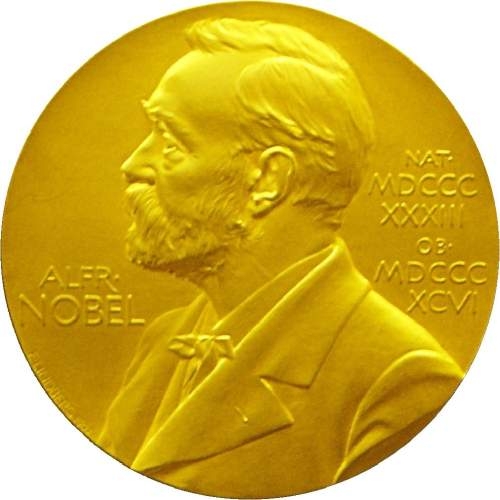Norway is known for many things but its most visible trait is being the country that awards what has been called “the world’s most prestigious prize”. The Nobel Peace Prize is an international award given annually by the Norwegian Nobel Committee according to guidelines laid down in Alfred Nobel’s will. The will states that the Peace Prize should go to whoever “shall have done the most or the best work for fraternity between nations, for the abolition or reduction of standing armies and for the holding and promotion of peace congresses”. The prize includes a medal, a personal diploma, and a large sum of prize money (currently 10 million Swedish crowns or 1.5 million Canadian dollars). The Peace Prize is one of five prizes that have been awarded annually since 1901 under the auspices of the Nobel Foundation in Stockholm for outstanding contributions in the fields of physics, chemistry, physiology or medicine, literature, and peace.
On October 7, The Nobel Institute in Oslo announced that the 2011 Nobel Peace Prize would be shared between three extraordinary women. Ellen Johnson Sirleaf and Leymah Gbowee are from Liberia and Tawakkul Karman is from Yemen. Johnson Sirleaf is a Harvard-trained economist who was elected president of Liberia in 2005, making her Africa’s first democratically-elected female president. The Nobel Committee noted that “since her inauguration in 2006, she has contributed to securing peace in Liberia, to promoting economic and social development, and to strengthening the position of women.” Gbowee, a renowned Liberian peace activist and women’s rights advocate is a trained social worker, known for her work on peace building and truth and reconciliation in Liberia, as well as her efforts to advance women’s rights across Africa. Gbowee was cited by the Nobel Committee for her efforts in organizing women “across ethnic and religious dividing lines to bring an end to the long war in Liberia, and to ensure women’s participation in elections.” She was also commended for her advocacy efforts and her push to enhance the role of women across West Africa. Karman is a 32-year-old activist and chair of Women Journalists without Chains who has been working to promote human rights in Yemen for years. She was arrested in January 2011 after demanding the ouster of President Ali Abdullah Saleh and the creation of a democratic government. Many credit this event with starting the civilian uprising in the country against the dictatorial government. When the announcement was made, Karman was in a protest tent in Change Square in central Sanaa, the capital of Yemen which has been the symbolic centre of the continuing uprising.
Thorbjorn Jagland, the chairman of the Norwegian Nobel Committee told Ottawa Life Magazine that “this year’s prize sends a message to the Arab world about democracy and women’s rights.” He said that the Nobel Committee hoped that the 2011 Peace Prize winners would “help bring an end to the suppression of women that still occurs in many countries, and to realize the great potential for democracy and peace that women can represent.” Geir Lundestad, Director of the Oslo-based Nobel Institute said a record 241 nominations were put forth for this year’s Nobel Peace Prize. Of the nominees, 53 were organizations and the rest individuals. The tally surpasses last year’s record of 237. The names of the nominees are not disclosed. Jailed Chinese dissident Liu Xiaobo won the prize in 2010 for his work to promote human rights and democracy, an award that was denounced by authorities in Beijing. U.S. President Barack Obama won in 2009. The Prize is awarded at a ceremony in the Oslo City Hall annually on December 10, the date on which Alfred Nobel died.

